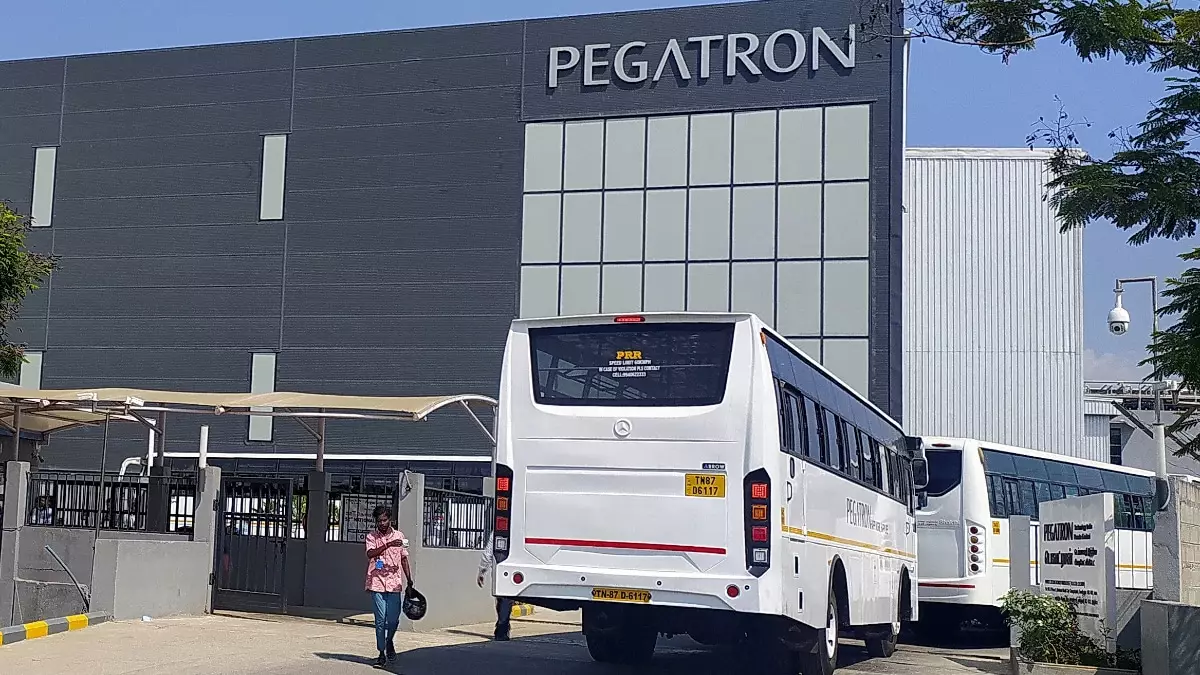The recent fire incident at Tata Group’s iPhone component plant in Hosur, Tamil Nadu, has raised significant concerns about production capacity and supply chain implications for Apple, especially as the festive season looms in India. With estimates suggesting that the iPhone 14 and 15 models could see local sales of up to 1.5 million units during this peak selling period, this incident threatens to disrupt the manufacturing momentum as both Apple and Tata scramble for solutions. This article explores the wider implications of the fire, examining its effects on production, sales potential, and the overarching ambitions of “Make in India.”
Production Halt and Immediate Supply Chain Challenges
The fire at Tata’s facility has forced a complete cessation of operations, creating a domino effect within Apple’s supply chain. Tata’s Hosur plant serves as the sole Indian supplier for key components such as back panels, which play a critical role in the assembly of iPhones. Given that Apple generally maintains a three to four-week stock of these parts, the sudden disruption poses a significant challenge.
Industry watchers, including experts from Counterpoint Research, have indicated that Apple could face a 10-15% shortfall in production capabilities for older iPhone models sourced from India. As a result, the company may be compelled to source components from alternate suppliers in China or other countries, potentially incurring logistical delays and additional costs. Though some sources suggest that Apple may have enough stock to withstand an immediate crisis, prolonged disruptions could necessitate urgent corrective measures, including establishing new assembly lines or increasing shifts at existing facilities.
This incident cannot be analyzed in isolation; rather, it reflects a more significant issue related to the Indian government’s “Make in India” initiative, which aims to position India as a global manufacturing hub. The fire draws attention to ongoing challenges that the electronics manufacturing sector faces, particularly regarding safety standards and operational integrity. Past incidents involving suppliers such as Foxlink and Pegatron underscore the pressing need for heightened focus on safety protocols to attract and retain foreign investment.
While Prabhu Ram from Cybermedia Research refers to these disruptions as “temporary setbacks,” it is essential to consider the long-term implications. Continued instability in supply chains could deter prospective foreign investors. The commitment to improving operational standards will be crucial if India aims to solidify its reputation as a reliable electronics manufacturing destination.
Sales Outlook Amidst Festive Season Demand
The Indian festive season provides a critical window for Apple’s sales, traditionally characterized by increased consumer spending. Despite the looming challenges posed by the fire at Tata’s plant, industry experts predict strong demand. The expectation is for Apple to fulfill a good portion of 1.5 million units, but a shortfall of 15% signifies a missed opportunity during one of the peak sales windows. The inability to meet such demand could lead consumers to consider alternative brands, impacting Apple’s market share.
The inability to fulfill orders through local assembly lines could force Apple to rethink its strategy in India. The festive season sales potential, paired with production shortcomings, emphasizes the importance of diversifying production bases and maintaining robust supply chain logistics.
As Tata Group navigates the aftermath of the fire, their long-term viability as a key supplier for Apple remains precarious yet hopeful. The company has made significant investments in building manufacturing capabilities, and the future of their plans—such as the upcoming iPhone assembly line—now hangs in the balance. Tata’s other facilities, particularly the those near Bengaluru and Chennai, may provide lighter relief due to their operational capabilities but also raise the question of whether investment in safety will be prioritized moving forward.
The fire at Tata’s plant highlights the fragile nature of modern supply chains and their susceptibility to unforeseen events. As Apple relies increasingly on Indian manufacturing, it must navigate this complex landscape, ensuring that both production and safety standards are sufficiently robust to withstand future challenges. The collaboration between Apple and Tata will be crucial in reinforcing the resilience of India’s burgeoning role in global electronics manufacturing.

Leave a Reply